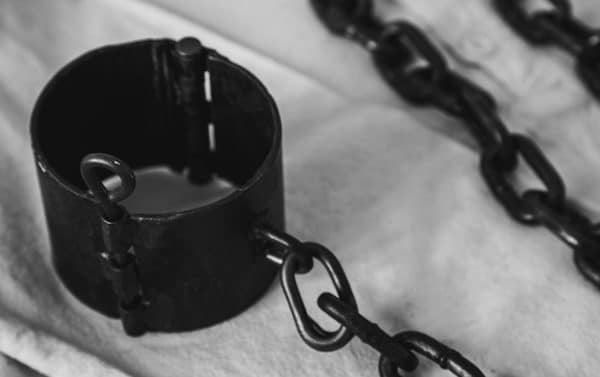
After Meghan Hampsey was raped, she called her mom. She was a junior at George Washington University. Her mother, who lived in New York, got in the car. She arrived in DC four hours later and spent the weekend with Hampsey in her twin-sized bed.
“I am really lucky to have a strong support network,” Hampsey said, when she spoke of this moment. Not only did she have her family on her side, but she also had Title IX.
Title IX is a civil rights law that prohibits discrimination on the basis of sex in federally funded education programs. Under Title IX, schools ranging from K–12 to private universities must make sure that all students have equal access to education. This includes proactively responding to claims of sexual assault.
Hampsey, who had taken a leave of absence the semester before her rape, said that her Title IX office helped her graduate on time, despite what had happened to her. She worked with her Title IX coordinator to reach out to her professors and get extensions on her midterms.
Hampsey chose not to press charges against her attacker, either criminally or internally, because she had seen first-hand the retraumatization of survivors and did not want that for herself. Still, she felt her school’s Title IX office worked for her.
Mahroh Jahangiri was not as lucky. She was raped during her sophomore year of high school. She had no idea that Title IX existed and no clue where to turn.“I was terrified of the cops as a brown and Muslim person in this country, and I just chose to report to no one at all because I didn’t know I could go to my school,” Jahangiri said. “I ended up dropping out.”
With the help of a supportive family, Jahangiri continued her high school education at home and went on to college. A decade later, she is the Executive Director of Know Your IX, the survivor- and youth-led organization that empowers students to end sexual violence in their schools. Know Your IX helped pen an open letter to current US Secretary of Education Betsy DeVos published Wednesday, July 12, urging DeVos to enforce Title IX protections. The letter was signed by 114 survivors, including Hampsey.
This letter was a response to events of the last month, which have proven cause for concern among advocates and survivors, as they worry that their Title IX protections could be rolled back by the current administration.
First came the withdrawal of protections for transgender students to use the bathroom of their choice, as guaranteed by Title IX under the Obama administration. Then came the news that budget constraints at the Office of Civil Rights (OCR), the department charged with investigating Title IX violations, would lead to cutbacks in initiating proactive investigations. This was followed by an announcement from Candice Jackson, Acting Assistant Secretary of OCR, stating that the department plans to hide the list of schools under investigation for Title IX violations from the public. The final straw was the news that DeVos planned to meet with “men’s rights” organizations, which Jahangiri refers to as “right-wing hate groups,” to discuss Title IX.
“When the news came out that DeVos was both planning to roll back protections [on Title IX] and spending her time discussing the law and its nuances with hate groups rather than with survivors, we were outraged,” Jahangiri said. “Unfortunately, we have an administration that’s hell bent on targeting the most vulnerable young people.”
While Jahangiri felt rage, Hampsey felt fear. “That those are the people she’s choosing to meet with, from the get-go, sends a message that she does not care about survivors and...she doesn’t believe survivors,” Hampsey said. “The idea that they are going to make it even harder for survivors is just, truthfully, dangerous. It really, really scares the shit out of me.”
But things would not be so scary for Hampsey if she were protected by an Equal Rights Amendment (ERA), at least not according to the National Organization for Women (NOW), which states on its website that the ERA would “make it significantly more difficult to roll back progress on women’s equality.”
The Fight for the ERA
The ERA is nothing new. It was proposed in 1923 and passed by Congress in 1972. It needed a majority vote by the states—an approval by at least 38 states total—to be ratified. Unfortunately, it fell three states short of ratification by its 1982 deadline and was never brought into law.
Now, 35 years later, the fight for the ERA has resurged. Nevada became the 36th state to ratify the amendment in March and groups like the ERA Coalition and NOW have made ratification part of their mission statements.
For Terry O’Neill, a feminist attorney and the former president of NOW, the ERA is necessary because it provides a “principle of equal protection for all women,” a principle upon which new laws can be built. “With most constitutional provisions, you have to then pass laws and the basis for the law is the constitutional provision itself,” O’Neill said. “For federal legislation, because the United States government is a government of limited powers, any law that it passes has to have some platform in the Constitution.”
It is not as if there are no protections for women in the Constitution, though. In 1971, a year before the ERA was sent to the states for ratification, the Supreme Court “applied the Equal Protection Clause of the 14th Amendment to strike down a law that discriminated against women,” according to the National Women’s Law Center. Since then, the 14th Amendment, along with Title VII of the Civil Rights Act, which prevents sex discrimination in employment, have been used as the basis for women’s rights in the United States.
Some, like Sylvia Law, professor at New York University and one of the nation’s leading scholars in both gender justice and constitutional law, argue that the ERA is not worth talking about in this day and age. “The serious fights today are about women’s abilities to control their own bodies, whether it is about right to contraception and abortion or sexual assault and harassment,” Law said. In her view, the ERA of the 1970s is too limited. “It was a really very modest effort to change things,” Law said. “It quite deliberately did not take on issues of discrimination on the basis of reproductive choice or pregnancy. It was silent on most of those things.” She added that an ERA that addresses those issues would be a different ERA.
For O’Neill, though, the ERA does not need to change its language to be effective in today’s society. She believes that it is worded broadly enough so that it can be read in an intersectional way. “It goes far beyond equal pay for equal work or women’s ability to become CEOs,” O’Neill said. This intersectional interpretation of the ERA includes protection for victims and survivors of sexual assault. “The ERA would be a huge advantage for those of us promoting Title IX,” O’Neill said. “It makes Title IX more of a mandate, mandated by the people of this country through the constitutional amendment process.”
The ERA and Title IX
Law notes that “it’s a complex relationship” between Title IX and the ERA. If the ERA were ratified, it would be limited to the state and would not protect women against discrimination at private establishments, like universities. By the same token, campus sexual assault is typically handled within the school itself through different processes than criminal investigations.
Still, while Title IX is generally enforced distinctly from national law, “the political movement that would make the ERA possible would also make Title IX a more aggressively and more politically popular, important tool,” Law said.That Title IX could stand to be strengthened is an opinion shared by most. According to O’Neill, the law has the potential to be effective, but it is not effective yet. “Right now, colleges are specifically refusing to treat victims equally with rapists,” O’Neill said. “The colleges specifically take the position that, unlike any other wrongdoing on campus, the victim is presumed to be lying.” “If somebody breaks into your dorm room and steals your computer, you are not presumed to be lying. But is somebody rapes you, you are presumed to be lying. Most college campuses operate that way and that’s a total denial of equal educational opportunities,” she added.
O’Neill was sure to distinguish Title IX enforcement from criminal law. “Colleges do not put people in jail. They do not deprive people of their actual liberty. They do not lock people up in prisons. The court systems do that,” she said. “Obviously, for all criminal proceedings where you are going to be locked up, yes, there you need a presumption of innocence. But when you are talking about adjudicating whether a student has committed a rape, there should be no presumption of innocence.”
Hampsey, who admits she is one of the few people at GW who has had a really positive experience with her Title IX office, said that Title IX failed her classmate and friend, who Hampsey said had to graduate with her attacker, even after he was found guilty of assaulting her. In response, Hampsey and a group of other students protested at graduation, dropping a banner with the hashtag #GWProtectsRapists. GW is not currently one of the 242 universities under investigation by the Office of Civil Rights for Title IX violations but, according to Hampsey, her friend is planning to file a Title IX complaint.
Filing a Title IX Complaint
Title IX investigations are filed with the Office of Civil Rights in three ways. The first route is through compliance review, which entails the proactive investigations opened by OCR that, due to budget constraints, are likely to diminish. The second is via complaints made by students, such as Hampsey’s friend, who claim that the school did not adequately handle their sexual assault allegations. The third way is through complaints made by those accused of sexual assault who claim either that their school did not give them due process or that they were discriminated against on the basis of their sex during the investigation. Due Process is a clause of the 14th Amendment that guarantees the right to a fair hearing. Remember the 14th Amendment? The same amendment that guarantees women equal protection under the law also guarantees rights for those accused of sexual assault.
Since 2015, over 100 individuals have taken their complaints a step further by filing lawsuits, alleging that their schools “violated their rights in the pursuit of investigating and adjudicating sexual assault,” according to a database kept by the group Title IX For All. O’Neill believes that some students may be using the Due Process Clause as a weapon. “It’s a common tactic, especially by predatory rapists, to aggressively go after anybody who holds them accountable for their actions,” she said.
But Jahangiri disagrees. “The MRA [men’s right’s activits] crowd and, sometimes accidentally, even our own movement make it sound like survivors' rights come at the expense of accused students, but they don’t,” Jahangiri said. “Title IX protects all students and guarantees fair, transparent campus proceedings for all students.” “We’re doing this work because we do believe in fair process and we also believe in protecting victims,” Jahangiri said. “There’s no zero-sum game between the two of those. We can have both.”
The United States can do a far better job in punishing people who engage in sexual assault, but without violating their rights to due process, Law added. “If you want to take the problem of sexual assault seriously, you just have to devote the resources to vigorous prosecution of people, including granting them all of their rights under the 14th amendment.”
For O’Neill, the ERA may be the key to increased resources. “It is a reason for lawmakers to put more resources into Title IX enforcement, to allow Title IX to grow and be available to all the different types of girls and women seeking an equal educational opportunity in whatever situation they find themselves,” O’Neill said. And while she acknowledges getting the ERA passed under this administration will be tough, she still has hope. “The Trump/Pence administration is deeply misogynistic. We all know that if the ERA were to be ratified by the two remaining states, that it would be an uphill battle to have it enforced,” O’Neill said. “But you have to start somewhere.”
Hampsey agrees. “I think at this point, given our current administration, the more we have in writing, the safer we are,” she said. “If we don’t have it in writing to begin with, what do we have?”
Christina Shaman is a 2017 fellow in the Sy Syms Journalistic Excellence Program, funded by the Sy Syms Foundation. The Sy Syms Journalistic Excellence Program at Women’s eNews fellowship supports editorial and development opportunities for editorial interns in the pursuit of journalistic excellence.


